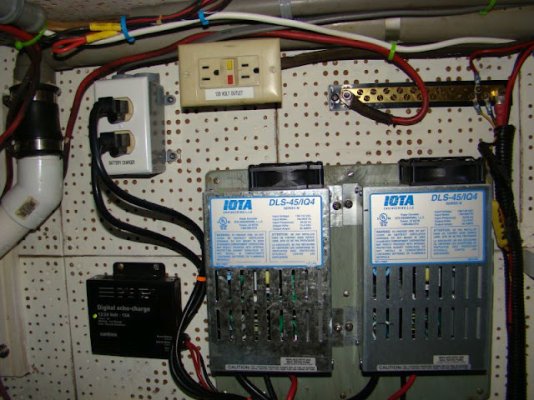Bob, No offense taken. Unfortunately too many folks still cling to the beliefs that were indeed issues ten or twenty years ago. But time marches on and so does technology. I have no financial interest in Iota other than being a very satisfied customer and the experience of seeing the units operating in many other boats. They are designed to run in the marine and RV environments and are a favorite for those using solar energy. It is a bit different technology than your average charger designed specifically for boats, but that is not necessarily a bad thing. Iota did have a bad batch come from the factory a while back but were quick to resolve the problem and replace any bad chargers. Their customer service is first rate as far as I am concerned. We so often see companies like Xantrex which has gone to pot, that when something comes along that works, is good quality and we don't have to refinance the boat to purchase it, I get the word out. They aren't made to hard wire them, they come with a three prong plug, but it is easy to hard wire. We chose to install an outlet dedicated to the charger and just plug it in. After a few years of service on this boat and about five years on our previous boat, we are happy with how well it has maintained the batteries under cruising conditions where they are often deeply discharged and recharged daily. The other positive I hear often is that they operate just as well plugged into shore power, on a dedicated generator, or a portable Honda, which we have been using for a couple of years now. When something on the boat needs to be marine specific, we don't hesitate, BUT, if there is another product out there that doesn't carry the marine specific cost and does as well or better, I am for it 200 %. Thanks, Chuck


 Thanks for the info...
Thanks for the info...